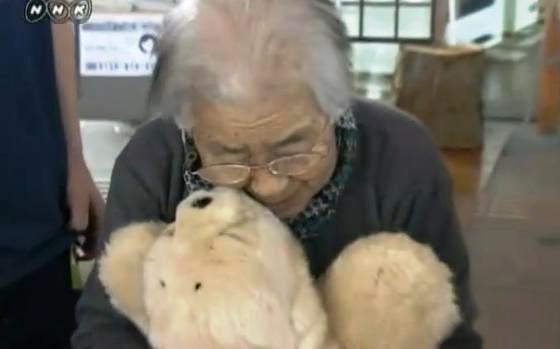It’s almost been a year since the Japanese tragedies which saw an earthquake and subsequent tsunamis rock the country with many losing their homes, possessions and most unfortunately for many even their loved ones. With the rebuilding of not only the affected area of the Pacific coastline but also the lives of those who survived, Japan co. AIST – which is a “leading industrial automation pioneer” – has been offering its own unique form of aid to comfort those still in grief or suffering depression after the events which devastated the country from March 11th 2011 – It’s a cuddly toy seal called PARO.
Before you think that sounds like a pretty cheap consolation for the loss these people have suffered – but when you look again you’ll see that PARO is no ordinary stuffed toy. The seal is actually something that was been around for a couple of years now and has becoming hugely popular in providing not only fun for kids but also comfort and companionship to adults suffering loneliness, depression and dementia. PARO is a big hit in the Far East and the high tech toy thrives off attention and though touch and audio sensors responds expressively to a human care giver, excitedly flapping its fins when petted as well as producing a soothing cooing noise – in fact it kind of reminds us geeks of the Tribbles from Star Trek and their effect on the Enterprise crew!
PARO seals have been applauded by US President Barack Obama and are said to cost $6000 a pop. They have been available for loan to Japanese people who have set up a temporary village inside of the Kesennuma baseball stadium and examples of the toy’s uses range a woman in here 40s who lost beloved family pets in the tsunami and for a 51 year old man whose nephew sadly died amongst the 19,000 who were lost during the tragedies, the humble toy is able to bring some degree of relief to his mourning and isolation from the makeshift community.
The centre where the PARO toys are being dealt out provide other robotic aids and their front desk is even manned by not a man at all – but an android. ASIT’s Kazuhiro Kojima – one of the brains behind this operation – is hoping that robotics can help rebuild communication and communities affected by the events one year ago and he emphasises the human needs when he says “Mental support will become a very important issue here. I hope robots can help.”
Let us know your thoughts on our comments below or via our @Gadget_Helpline Twitter page or Official Facebook group.


